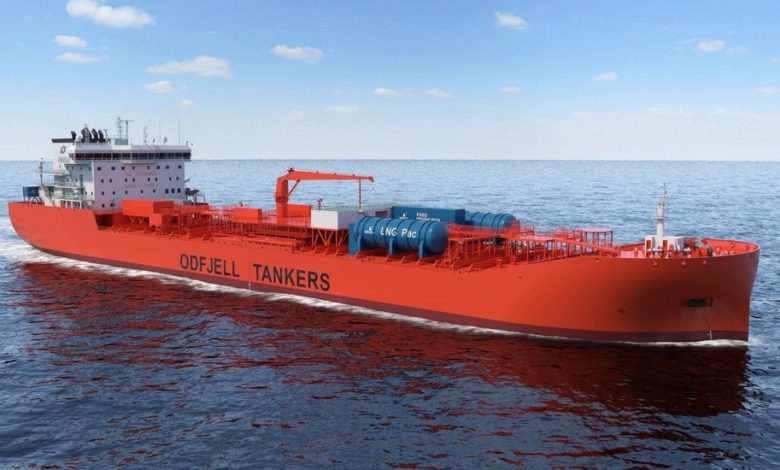Odfjell readies for landmark fuel cell tests

A Scandinavian team is developing a 1.2 MW prototype fuel cell that will be mounted onboard one of Odfjell’s newest chemical tankers. The main partners in the project are Odfjell, Prototech, Wärtsilä and Lundin Energy Norway with Norwegian prime minister, Erna Solberg, getting a briefing on the landmark project yesterday.
The new and flexible fuel cell technology can reduce emissions from shipping by 40 to 100%, the partners claim in a release today.
“Our tests show a CO2 reduction of as much as 40-45% when using LNG, compared to current solutions. Increased efficiency and reduced fuel consumption also provide significant cost savings, and the ship will be able to sail significantly longer on the same amount of energy. The system will also be ready to operate completely emission-free from the locations where, for instance, ammonia is available for bunkering,” said Bernt Skeie, CEO of fuel cell specialist Prototech.
The technology also enables direct capture of CO2, another alternative for emission-free operation when logistics for CO2 management become available.
The unique feature of the new technology is its high energy efficiency and the flexibility that enables significant emission reductions already from day one with the use of currently available infrastructure for LNG – while also preparing for emission-free operation in line with the development of value chains and infrastructure for sustainable fuels such as green ammonia in the years to come.
“Ships are to be operated for 20-30 years, and we need flexible solutions that can meet future emission requirements. We do not have time to wait, we have to think about zero emissions already now,” said Erik Hjortland, technology director at Odfjell. “The fuel cell project is one of the paths we are pursuing. We focus on machinery rather than focusing on one single type of fuel. Fuel cell technology gives us flexibility that ensures environmentally efficient operation regardless of fuel changes that may occur in the years ahead.”
